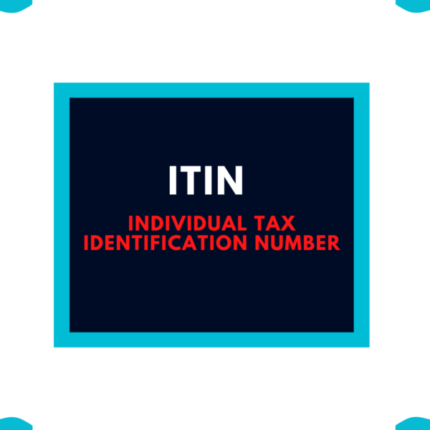Procedures to Form Texas LLC:
A Texas LLC is a legal business arrangement that protects you from being sued personally. If your L.L.C. is sued, your personal assets, such as your home, car, and bank accounts, are safe.
You can run a business with your L.L.C., or you can use it to buy things like real estate, cars, boats, and airplanes.
A. Name of a Texas company with limited liability
L.L.C. names: Before you file your Texas L.L.C. Certificate of Formation with the Secretary of State, you should check to see if the name you want to use for your L.L.C. is available in Texas.
Your Texas L.L.C. name must be different from the names of other businesses already listed in the state.
In Texas, there are three ways to look up an L.L.C. name:
* Call 512-463-5555 to reach the State Business Information Line.
* Write to corpinfo@sos.texas.gov.
* Check the Taxable Entity Search page of the Texas Comptroller.
LLCU suggests that even if you look up your L.L.C. name on the Taxable Entity Search page and it seems to be available, you should still call and make sure. Texas used to be very strict about the names that could be used for businesses. Even though they have changed their rules and made them less strict, most L.L.C. filings are still turned down because of problems with the business name. To be sure, it’s best to call. And if you call first thing in the morning, you won’t have to wait long.
Designator
At the end of your L.L.C.’s name, you must add a designator. You can use any of the following, according to Texas law:
* L.C. or L.L.C. (the most popular is L.L.C.)
* Ltd. Company
* Company with limited liability
* Ltd. Company No.
* Ltd. Liability Company
* Company With Limited Liability
Your Texas business name can’t include a word that makes it sound like a different kind of legal organization. For example, you can’t use Inc, Incorporated, Corp, Corporation, L.P., L.L.P., Non-Profit, Non-Profit Corporation, etc. in the name of your L.L.C.
People rush through the process of choosing their L.L.C., form their L.L.C., and then want to change the name of their business three months later. You can do this by making an Amendment with the Secretary of State. However, there are a few things you should know first. First, that Amendment costs $150, and then you have to change your business name everywhere else: with the I.R.S., the Comptroller, the bank, debit/credit cards, online registers, etc. It’s just bothersome. It’s better to take more time and come up with a good name for your L.L.C. from the start. How to come up with a good business name has ideas for names.
B. Agent of Record for Texas
Registered Agent
In your L.L.C. Certificate of Formation, you must list a Registered Agent. This is required by the Texas Secretary of State.
A Registered Agent in Texas is a person or company that agrees to receive notices, legal mail, and court papers (called “Service of Process”) if your L.L.C. is sued or involved in a court case.
Your Texas Registered Agent must have a real street address in Texas where they can receive legal papers and other notices.
State law says that the “Registered Office” address of your Registered Agent cannot be:
* a P.O. Box address
* a service for renting mailboxes, like The U.P.S. Store.
Who can act as your Registered Agent in Texas?
Note: As we talked about in our Texas Registered Agent lesson, who you choose as the Registered Agent for your business will affect your privacy and which of your addresses will be listed in public records.
In Texas, you can choose from three people to be the Registered Agent for your L.L.C.:
* You can be your own Registrar of Motor Vehicles.
* You can tell a friend or a member of your family.
* You can also engage a Registered Agent Service. Engaged Registered Agent Service is a good idea if * you want to keep your home out of public records or if you don’t have an address in Texas.
Consent to serve: The person or company you choose to be your Registered Agent must sign a Consent to Serve as Registered Agent form (Form 401A).
Northwest has been in business for more than 20 years and has great customer service. They will scan and send to your online account any mail that is sent to your L.L.C. They will also let you use their office address in your L.L.C. paperwork so that your address doesn’t show up in public record
C. Certificate of Formation in Texas
Articles of Organization in Texas, you need to file a Texas Certificate of Formation if you want to start an L.L.C.
Cost to form an L.L.C. in Texas: $300
Forming an L.L.C. in Texas can be done online or by mail. You can also file by fax or in person, but since the first two are the most usual, we’ll focus on those.
You can file online by using SOSDirect. You have to put your credit card information first, which is a bit strange. But don’t worry. If you don’t click “submit” at the end, they won’t charge you. This is just to stop people from making false claims.
Prepare a Certificate of Formation (Form 205) and a Consent to Serve as Registered Agent (Form 401A) if you want to file by mail. Send two copies of your forms and a $300 check or money order made out to “Secretary of State” to:
Section on Corporations, State Secretary, PO Box 13697, 78711 Austin, Texas
Time for L.L.C. approval: If you file online and use the S.O.S. Upload, your L.L.C. will be approved in 13 to 15 working days. If you use S.O.S. Direct to file online, it will be approved in 10 to 12 working days. If you file by mail, your L.L.C. will be accepted in 4–8 weeks (plus the time it takes to get to you).
Due to the current state of the world and government delays, it may take longer to file. Check out how long it takes to get a Texas L.L.C.
Documents of approval: You will get back a Certificate of Filing and a Certificate of Formation that has been signed and approved. If you file online, they will be sent back to you by email. And if you file by mail, they will be sent back to the Registered Agent’s address by regular mail
D. Operating Agreement for a Texas L.L.C.
Operating Agreement: A Texas L.L.C. Operating Agreement is a written deal between the L.L.C. Members that says who owns the L.L.C. and how much of it they own.
Your L.L.C.’s Operating Agreement will also show how your L.L.C. is run, how gains are split, how taxes are paid, and more.
Both Single-Member L.L.C.s and Multi-Member L.L.C.s in Texas should have Operating Agreements. Having an Operating Agreement for your L.L.C. helps show that the business is a different legal entity from its owners. If you ever have to go to court, this will help keep your assets safe.
Internal Document: An L.L.C. Operating Agreement is an “internal document,” which means you don’t have to send a copy to the Secretary of State, the Texas Comptroller, the I.R.S., or any other state or federal office. You just need to retain a copy of the Operating Agreement with your L.L.C. business records and give a copy to any other L.L.C. Members, if necessary.
E. Federal Tax ID Number (E.I.N.)
E.I.N. Number for an L.L.C. Texas E.I.N. Number (Employer Identification Number) is given by the Internal Revenue Service (I.R.S.) after your L.L.C. is accepted by the Texas Secretary of State.
An E.I.N. is also called an E.I.N. Number, a Federal Employer Identification Number, a Federal Tax ID Number, or a Federal Employer Identification Number. All of these have the same meaning.
You can think of the E.I.N. Number as the “social security number” of your L.L.C. It helps the I.R.S. figure out who your L.L.C. is for tax and filing needs.
Your E.I.N. will also be needed when you open a bank account for your L.L.C., sign up for taxes, and, if you have employees, pay them.
How do you tax an L.L.C.
The I.R.S. doesn’t have a specific tax category for L.L.C.s. Instead, the I.R.S. can pay an L.L.C. in 4 different ways. Two of these happen. When you get your L.L.C.’s E.I.N., but the other two need a special decision (you have to fill out a form after you get your L.L.C.’s E.I.N.). Before you apply for your L.L.C.’s E.I.N. Number, you should read How an L.L.C. is charged.
Wait until your L.L.C. is approved. Don’t ask for an E.I.N. until the Texas Secretary of State has approved your L.L.C.
An E.I.N. costs nothing ($0): The I.R.S. will give your L.L.C. a free E.I.N
Husband and Wife L.L.C.: If you are forming a 2-Member husband and wife L.L.C. in Texas, you can choose a special type of taxation called a Qualified Joint Venture L.L.C. This lets a 2-Member husband and wife L.L.C. be treated as a Sole Proprietorship instead of a Partnership for tax reasons.
When you file for an E.I.N. for your L.L.C., this person will be the “contact person” for the I.R.S. If you have a Single-Member L.L.C., you will be the Responsible Party. If you have an L.L.C. with more than one member, any member of the L.L.C. can be the Responsible Party. See E.I.N. Responsible Party for an L.L.C. for more details.
How to fill out an E.I.N. form
You can get an E.I.N. for your L.L.C. in three ways:
* You can apply for an E.I.N. online if you have an SSN or an ITIN.
* If you try to get an E.I.N. online and get an error message, you’ll have to use Form SS-4 to get an E.I.N. instead.
* You can still get an E.I.N. for your L.L.C. if you don’t have an SSN or ITIN: how to get an E.I.N. without an SSN or ITIN
F. L.L.C. in Texas: Public Information Report and Franchise Tax
L.L.C. Annual Report: All L.L.C.s in Texas must file a Texas Franchise Tax Report and a Public Information Report (P.I.R.) every year, no matter how much money they make or how much business they do.
In most states, an L.L.C. Annual Report is filed with the Secretary of State. In Texas, however, an L.L.C. “annual report” is filed with the Texas Comptroller’s Office. This report is called the Franchise Tax Report and P.I.R.
The franchise tax is a “privilege tax” that is paid for the right to do business in Texas. Part of this luxury is that state law protects them from liability.
Date due: Every year, Texas franchise tax returns are due on May 15. The first franchise tax report for your L.L.C. is due a year after it was formed. For example, an L.L.C. that was formed in March 2023 wouldn’t have to file its first franchise tax report until May 15, 2024.
Welcome Letter: The Comptroller’s office will send you a Welcome Letter a few weeks after the Texas Secretary of State approves your L.L.C. The 11-digit Taxpayer Number for your L.L.C. can be found in the Welcome Letter. This is not your tax I.D. number from the government. This is a Taxpayer Number for Texas.
Franchise Tax Questionnaire: You’ll find an F.Q. number in your Welcome Letter, which you’ll need to fill out the Franchise Tax Questionnaire. Using WebFile, you can do this online. After you send in your application, the office of the Comptroller will give you an X.T. Number. When you file your Franchise Tax Report and P.I.R. each year, you’ll need your 11-digit Taxpayer Number and your X.T. Number.
No tax due: More than 90% of L.L.C.s in Texas make less than $1,230,000 a year, which is the “no tax due threshold.” In that case, they fill out a report but don’t pay any tax. Form 05-163, which they fill out, is called the “No Tax Due Report.”
The No Tax Due Report needs to be sent in through WebFile. The Public Information Report is part of the No Tax Due Report when it is made online. WebFile puts them all together in one place.
If your L.L.C.’s yearly total income is more than $1,230, you can use either the E.Z. Computation method or the Long Form to file. The tax rate for E.Z. Computation is 0.331% of all income, and there are no exemptions. For retailers and wholesalers, the Long Form tax rate is 0.375% of the taxable margin. For all other companies, the tax rate is 0.75 %.
G. Licenses and/or permits for a business
Business License State business license: Anyone or any business in Texas can do business without a statewide general business license. You should check with your city or town, but most Texas places don’t have a general business license either. Texas is sticking to its plan to be business-friendly.
Sales tax permit
If any of the following is true about your Texas L.L.C.:
* It sells or rents out physical goods in the state.
* It sells a taxable service.
You can use WebFile to get a sales tax permit for your L.L.C. There are no fees.
Resale Certificate
Your L.L.C. can buy things to sell without having to pay sales tax if it has a Resale Certificate (Form 01-339) on the Resale Certificate F.A.Q. Page, you can find a link to the Form 01-339.
Local license or permit
Depending on where your L.L.C. is located and what industry it is in, you may need local (city, town, etc.) business licenses or permits to officially run it. There are too many cities and towns to name here, so if you need help, call your local government. Here is another place you can find a list of licenses:
* Click “Business” on Texas.gov and then “Occupational & Professional Licenses”
* On the webpage of the Department of Licensing and Regulation, there is a list of licenses.
* The Texas Commission on Environment Quality has a list of permits and licenses you may need.
H. L.L.C. Taxes
L.L.C. Taxes: An L.L.C. has to pay different kinds of taxes. Taxes can be thought of on three levels: federal, state, and local.
No state income tax: People who live in Texas don’t pay state income tax on their own wages. But, as stated above, L.L.C.s in Texas are expected to file franchise tax reports and collect sales tax (if it applies).
I. Federal income tax:
Most L.L.C.s in Texas are “tax-reporting entities” with the I.R.S., not “tax-paying entities.” This is because most of them are owned by U.S. citizens or residents. Because L.L.C.s, by nature, are pass-through entities, the L.L.C. owners report and pay taxes on their personal U.S. income tax return (Form 1040).
L.L.C.s that are owned by people from other countries
If a foreign country owns your Single-Member L.L.C., you have to file Form 5472 every year.
If a foreign country owns your Multi-Member L.L.C., you don’t need to file Form 5472, but you do need to file Form 1065 every year.
Single-Member L.L.C.
Suppose the owner of the L.L.C. is a single person, the I.R.S. taxes the Texas L.L.C. like a Sole Proprietorship. If the owner of the L.L.C. is another business, the L.L.C. is treated like a branch or division of the parent business. Most of the time, a Schedule C is used to report income from an L.L.C. or a sole proprietorship. However, a different Schedule may be needed based on how the money is made.
Husband and wife business
Because Texas is a community property state, a husband and wife who own an L.L.C. and file their taxes together can choose to be treated as a Sole Proprietorship alternatively of a Partnership, this is called a Qualified Joint Venture L.L.C. by the I.R.S.
Multi-Member L.L.C.
The I.R.S. taxes a Texas Multi-Member L.L.C. like a Partnership. In the case of L.L.C./Partnership taxes, the L.L.C. files a Form 1065 Partnership Return, which is a return for information only. Then, each member of the L.L.C. gets a K-1 that shows how much money they made. The K-1 is then added to the L.L.C. Member’s 1040 personal tax report.
Taxed like a business
If a Texas L.L.C. doesn’t want to be treated like a Corporation by the I.R.S. by default, it can choose to pay federal taxes like a corporation. Even though it’s not very usual, an L.L.C. can choose to be taxed like a C-Corporation. An L.L.C. can also choose to be treated like an S-Corporation, which is more common because it saves money on taxes for self-employed people. The S-Corp option only makes sense after a certain amount of net income has been made by an L.L.C. See L.L.C. taxed as S-Corp or L.L.C. taxed as C-Corp for more details.
Another tax
Texas doesn’t have a personal income tax, but your L.L.C. may have to pay other taxes based on the type of business you run. Some examples are the sales tax on batteries, the tax on crude oil, the tax on mixed drinks, the tax on natural gas, the tax on tobacco, and more (see all Texas taxes and fees). Even though most of our readers don’t have to worry about these, you should still talk to a lawyer to make sure your L.L.C. meets all its filing requirements.
Local taxes
You should also ask an accountant if your Texas L.L.C. has to pay any city, town, or other local taxes. This depends on where your business is and where your L.L.C. is based.
In short,
Taxes can be hard to understand. This is just a quick look. See our page on Texas L.L.C. taxes for more details. The best thing to do is also to work with a lawyer.
J. Bank Account for a business
After the I.R.S. gives your Texas Limited Liability Company an E.I.N. Number, you can open a business bank account.
Having a business checking account for your L.L.C. is the best way to protect yourself from personal risk. It’s called “commingling of assets” to use your personal bank account for your L.L.C., and if you end up in court, this could make you personally liable for business debts.
Having a separate business bank account for your L.L.C. also makes it easier to keep records for taxes and accounting.
Since each bank in Texas has its own rules and laws, we suggest calling several banks to find out the following:
* Minimum starting deposit
* Minimum balance standards
* If there are any monthly fees,
Required L.L.C. paperwork: If you want to start a bank account for your L.L.C., you’ll probably need the following:
* Certificate of Formation (stamped and okayed)
* Letter from the I.R.S. confirming your E.I.N.
* Driver’s license or passport with a picture.
* Operating Agreement (generally not needed, but good to have)
Tip: Call the bank ahead of time to make sure you have everything you need.
See the article Business bank account for an L.L.C. for more information.
L.L.C. Members: If you have a Multi-Member L.L.C., all Members who want to be on the bank account should be there when the account is opened.
Non-U.S. residents: If you don’t live in the United States but set up an L.L.C. in Texas, you can still open a business bank account in the United States. Please see this lesson on how to open a bank account for an L.L.C. if you don’t live in the U.S.
When you open the account, the bank will give you a debit card.
You can also get a credit card for your business to earn points, miles, and other benefits.
K. Business Phone Number
Get a different business phone number for your Texas L.L.C. instead of giving out your personal cell phone number or home phone number.
The Texas State Government Contact Details
The Secretary of State of Texas
The section on Corporations in Texas
(Forming/filing an L.L.C.)
512-463-5555 (8:00 am to 5:00 pm)
(L.L.C. taxes, franchise tax, sales tax, etc.)
800-252-1381 (8:00 am to 5:00 pm)
(If you’ll hire workers)
512-463-2222 (8:00 am to 5:00 pm)













